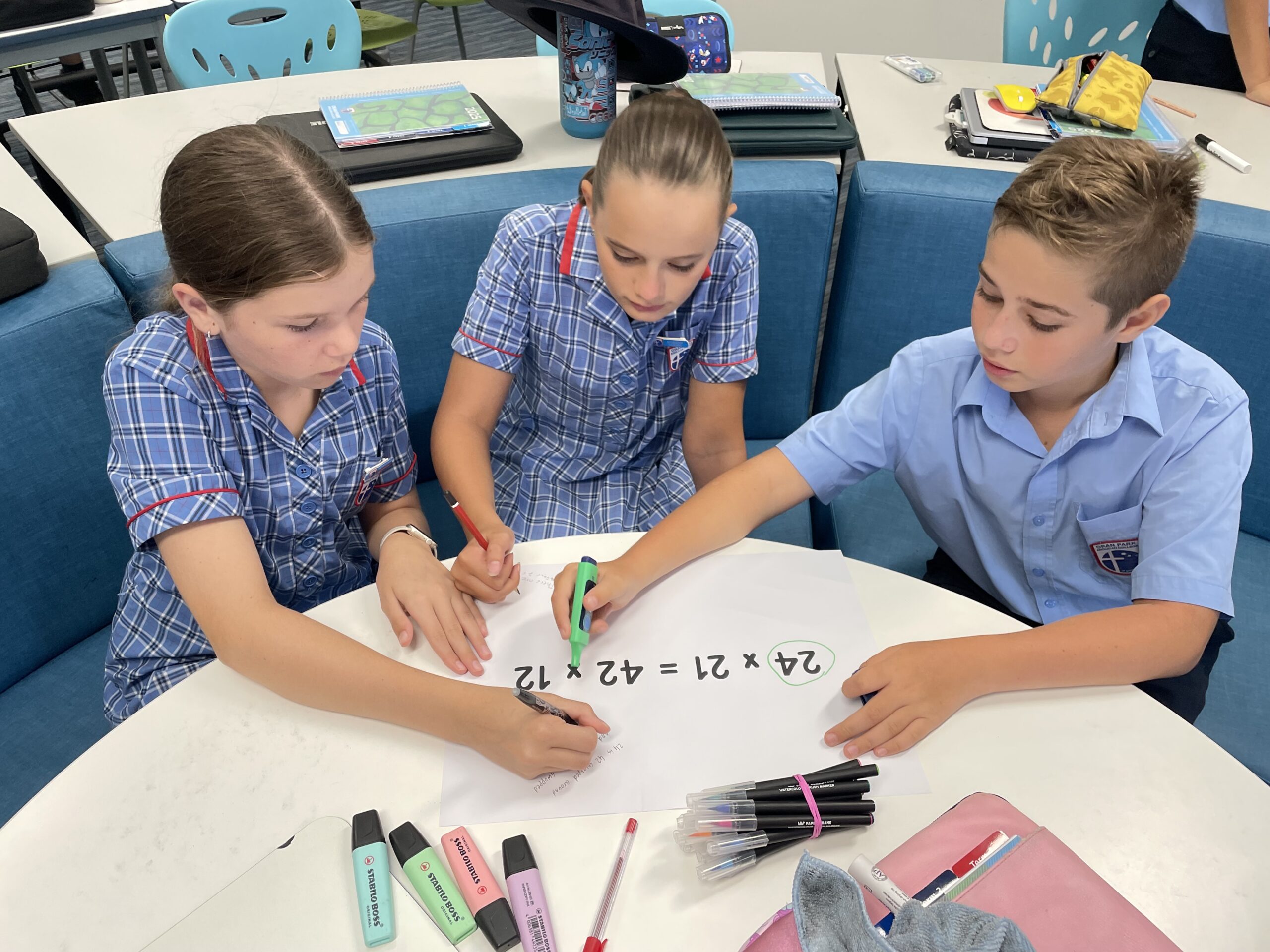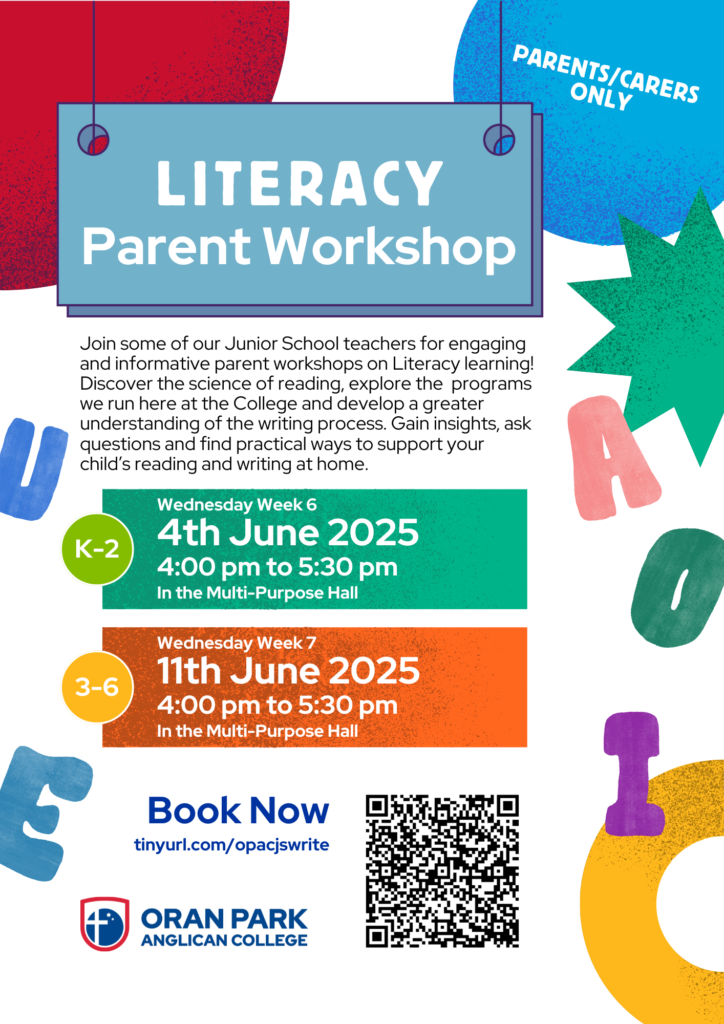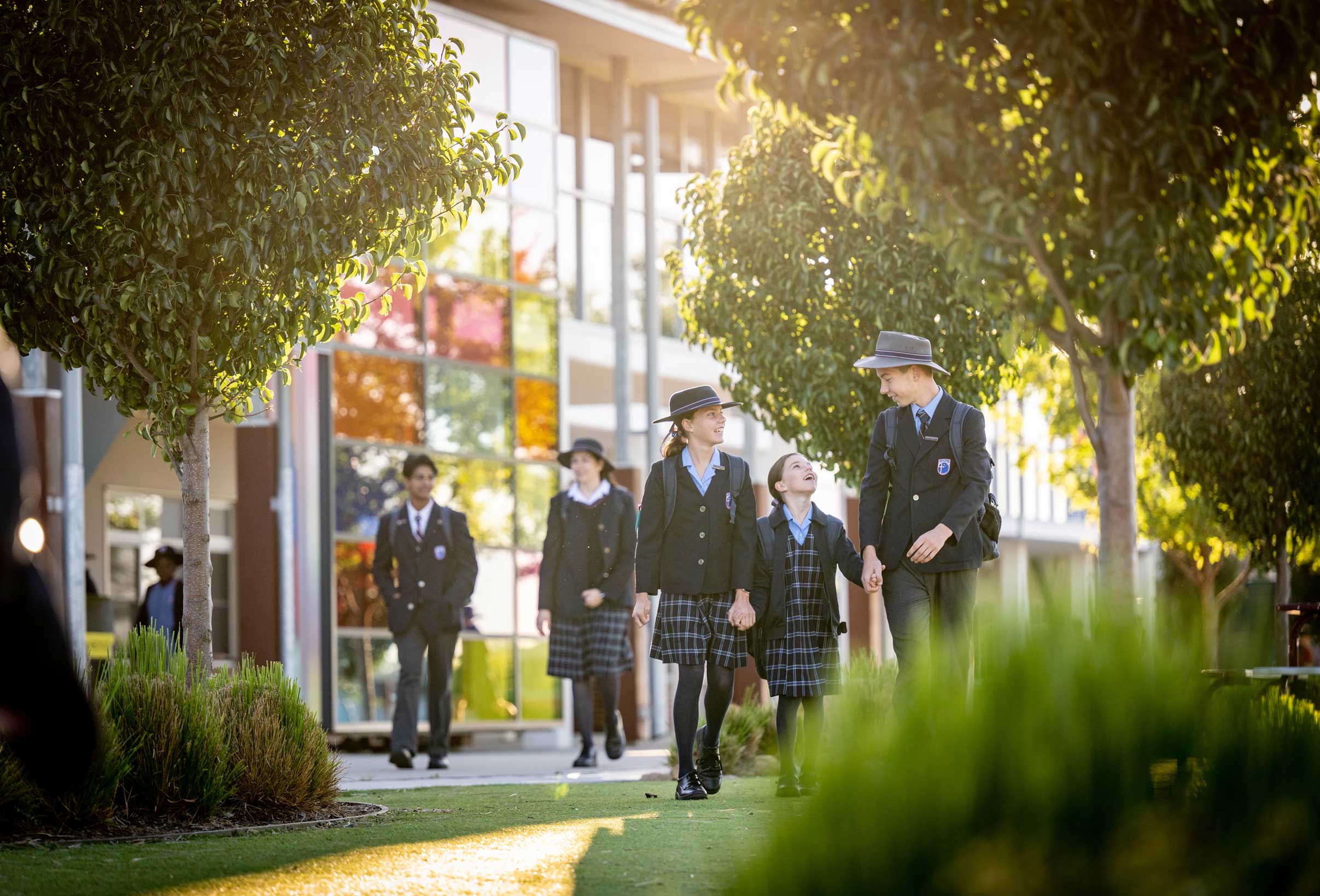The Science of Reading: Empowering Your Child's Literacy Journey
It has been an exciting term full of new learning and witnessing the developing learnership within our students. I have enjoyed spending time in classrooms and observing the enthusiasm and curiosity of our young learners in kindergarten find success in our Initialit program, where they are beginning to read simple words and texts. As we look at older years, I have been privileged to see students thriving as they explore a variety of rich texts and unpack new vocabulary, deepening their understanding and love for reading.
Reading is a fundamental skill that opens the door to a world of knowledge and imagination for our children. Within our classrooms we are working to build courage and develop craftsmanship around learning to read and to spark curiosity in the joy and wonder that can be found in losing yourself in a good book. Understanding the science behind how children learn to read can help us support their journey more effectively. Here is a brief overview of the key components involved in the science of reading.
- Phonemic Awareness – Phonemic awareness is the ability to hear, identify and manipulate individual sounds (phonemes) in spoken words. This skill is crucial because it forms the foundation for understanding the relationship between sounds and their corresponding letters.
- Phonics – Phonics involves teaching children the connections between letters and sounds. By learning these relationships, children can decode new words by sounding them out. This systematic approach helps them become more confident and proficient readers.
- Vocabulary – A rich vocabulary is essential for reading comprehension. Children need to understand the meaning of words to make sense of what they read. Encouraging conversations, reading aloud and exposing children to a variety of texts can help expand their vocabulary.
- Fluency – Fluency is the ability to read text accurately, quickly, and with proper expression. Fluent readers can focus on understanding the text rather than decoding each word. Practice and repeated reading of familiar texts can improve fluency.
- Comprehension – Reading comprehension is the ultimate goal of reading. It involves understanding and interpreting the meaning of the text. Asking questions, discussing stories and encouraging children to make connections to their own experiences can enhance comprehension skills.
How Can Parents Help?
Read Aloud
Reading to your child exposes them to new vocabulary and models fluent reading.
Engage in Conversations
Discuss books, ask questions and encourage your child to express their thoughts.
Provide a Variety of Reading Materials
Offer books, magazines and other reading materials that interest your child.
Create a Reading Routine
Set aside a specific time each day for reading to build a habit.
We are excited to invite all of our families to our Literacy Parent Workshops next term. These workshops will provide an opportunity to unpack literacy learning, explore what it looks like here at the College and discover how you can support your child’s literacy journey at home. We look forward to seeing you there and working together to foster a love of literacy in our students.
Enrichment in the Junior School
Mathematics
Earlier this term, Stage 3 students explored multiplicative relationships in Mathematics. Miss Lee and Mr. Mitas’ Maths classes approached this through an inquiry-based lens, using a prompt from Boris Kordemsky’s book The Moscow Puzzles (1956). Working both collaboratively as a class and in small groups, students used the See-Think-Wonder thinking routine to deepen their understanding and analyse the equation. This task elevated their learning, leaving many students on a “cliffhanger of curiosity” throughout the lessons. They were challenged to persist and remain open to new learning as they generated theories and discovered connections between numbers and digits. The discussion led to a variety of observations and questions, including, “Can we apply the same rules and format to other numbers?” This curiosity sparked an additional lesson where students experimented with two- and three-digit numbers to determine which ones fit the equation—and they succeeded!
“I found the activity puzzling and exciting to see how different numbers could work together and be manipulated!” – Eason P
“I really liked how the question was challenging and that it got us to think about how we can use our prior knowledge to make connections. ” – Emily R
Reading
In the Year 2 Extension Comprehension group, we have been exploring the vastness of space. Students have been excited to learn about the differences between meteorites and meteoroids, how constellations are formed and identified, and the importance of reducing space junk. Recently, they took on the role of space reporters, creating interviews with a space object of their choice. We brainstormed questions together and used our prior knowledge from the term to develop and read aloud interview-style scripts. This activity challenged students to adopt a new perspective, using their knowledge to craft creative and informative imaginary conversations.
Debating
Our Stage 3 Debating Team has been spending time honing their skills in argumentation, critical thinking and public speaking. They have been working hard and preparing for their first debate, where they took on the role of the affirmative team on the topic ‘All public spaces should have free water refill stations’ against St Mary and St Mina’s Coptic Orthodox College. Gurmehar, Michaella, Bailey and Eleanor were the speakers, each presenting compelling arguments and demonstrating impressive teamwork. Their dedication and enthusiasm paid off as they came out with the win! We are incredibly proud of their efforts and growth.
God bless,
Mrs Kathryn Watkins
Deputy Head of Junior School – Teaching and Learning





